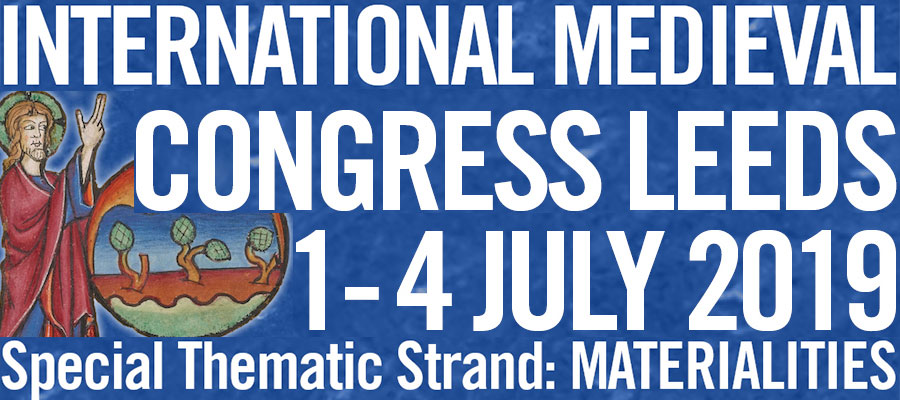Material Narratives of Late Antiquity, session at the 26th International Medieval Congress, University of Leeds, July 1–4, 2019
Since its inception, Late Antique Studies has brought material and archaeological evidence into conversation with documentary history. New types of material evidence continue to transform narratives in this field. These include the rise of big data in archaeology, new scientific methodologies like genomics and climate science, and compositional analysis of artefacts. Many such new studies have been published in scientific journals, and Late Antique scholars in the humanities face a field that is increasingly fragmented across disciplines.
Concurrently, advances in interdisciplinary theory have raised new questions about the narratives Late Antique scholars have used material evidence to tell about social collapse and transformation. Theoretical approaches including the Material Turn in cultural studies, Critical Race Theory, postcolonialism, and poststructuralism challenge Late Antique scholars to critically re-examine how new material evidence should shape future narratives in the field.
This session invites participants to investigate how material evidence from Late Antiquity has been used to shape narratives that privilege particular types of people, politics, or evidence; to propose new narratives rooted in new material and theoretical methods; or to offer case studies on the future potential of new advances in archaeological and material studies for our field.
Subjects for discussion might include (but are not limited to):
- The methodological difficulties of integrating material or scientific data alongside documentary evidence into historical narratives
- How material evidence can help scholars reassess narratives of ‘transformation’ or ‘Decline and Fall’
- Applications of critical race theory to established narratives of Late Antique socio-cultural change
- The appropriation of Late Antique history, archaeology, and narrative topoi by far-right political groups
- New approaches to the study of ethnicity, migration, and gender in Late Antique archaeology
The organizers invite papers of 20 minutes length from all disciplinary perspectives addressing these issues in the Late Antique World (broadly conceived, c. 200-700 CE). We welcome papers from scholars who do not usually present at the IMC and aim to ensure appropriate gender balance across the panels.
Session Organizers
James Harland
Andrew Welton
Session Sponsor
DFG Center for Advanced Studies, "Migration and Mobility in Late Antiquity and the Early Middle Ages", Eberhard-Karls-Universität, Tübingen
